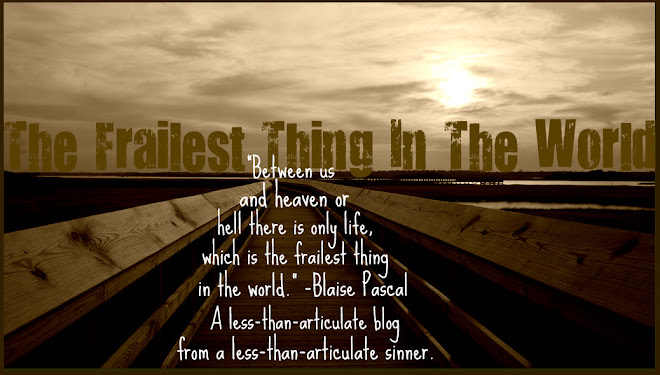For over 2 years, we've been slowly working through a Psalm a night on Wednesday nights. Last night we hit Psalm 100, and it was a sweet reminder of who God is and how He alone is worthy of our praise. The Psalms have been greatly cathartic to me. They show the great majesty of God for sure, his steadfast faithfulness and loving-kindness. The Psalms also show the honest and frail state of man in the throws of difficulties of life with all of the complexities that come from seeking to live as light in a dark world. Perhaps most comforting and beautiful to me in the Psalms is that I find doubt, frustration, happiness, confusion, clarity, pain, joy, sorrow, depression and yet still I find God, constant and faithful to listen and love.
I have found Psalm 100's strength lies in the truths of Psalm 100:3. We are told to "know that the Lord is God." To know that Yahweh is God is to stand on a firm foundation in our understanding and is comprehensive of just who the one true and living God is. Danny Akin says it is "to know who is God and who God isn’t. It is to know the Lord by His Word and through His
works. It is to know the God who has made Himself known
in nature and scripture (Ps 19) but supremely in His Son Jesus." Hebrews 1:1-2 reminds us, “God, who at various
times and in various ways spoke in time past to the fathers by the prophets,
has in these last days spoken to us by His Son, whom He has appointed heir of
all things, through whom also He made the worlds.”
We see in verse 3 that we are not our own, He created us. We are not our own, He has redeemed us (1Cor. 6:19-20). Here we find the natural antidote for our idolatry, selfishness, and navel gazing. We are not our own. We were bought with a price, and although it was free to us, it was greatly costly to God. James Boice said it well: “The natural result of knowing God is
to know ourselves, and the only way to really know ourselves is by knowing God”
(vol. 2, p. 812).
And if the phrase, “It is he who made us” is a
statement of accountability to remind us of our contingent origins, this phrase “we are His people and the sheep of
His pasture” is a statement of privilege. I not only know the King, I am known by Him. Don’t run past the personal pronouns in verse 3. We are His people and the
sheep of His pasture. This verse looks back to the kind words of Psalm 23 where the good shepherd leads us to lay down by still waters and even though " I walk through the valley of the shadow of death, I will fear no evil, for you are with me: your rod and staff, they comfort me." Why don't I fear? Because the one who disciplines me also knows the way to bring me to safety; He sees farther than I do and He loves me. Verse 3 also looks forward to Luke 15:3-6 and John 10:1-18. Both are talking about Jesus! He is our Shepherd-King and being known by His great love allows to praise Him, as Psalm 100:1 tells us to, despite our circumstances, because of what we know to be true.

No comments:
Post a Comment